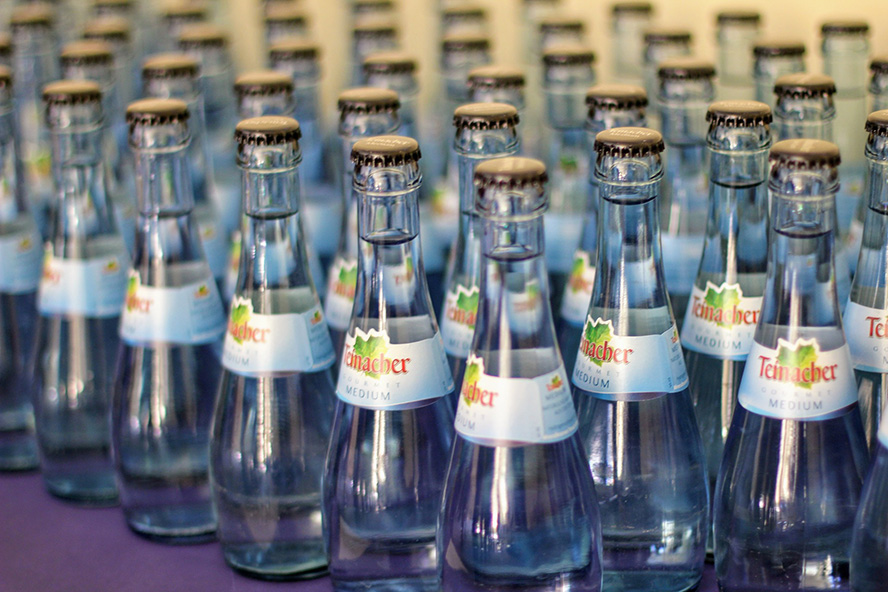
The size of Singapore's bottled water industry SGD 134 million reflects a society that is comfortable with spending millions of extra dollars and producing tonnes of plastic waste; despite having access to perfectly safe drinking water from the tap.
Are Singaporeans' drinking water choices a representation of an environmentally-unfriendly society? Is Singapore "addicted" to
bottled water?
Maybe not. Specifically so for the younger generation who are growing up around an information explosion about global climate change. For these young Singaporeans, sustainability seems to be a serious topic, impacting their behaviour choices in daily
life such as choosing tap water over bottled water.
A recent study by the Institute of Water Policy, a research centre of the Lee Kuan Yew School of Public Policy, National University of Singapore, investigated the drinking
water choices of university students in the following three cities: Singapore, Hong Kong and Macau. The three cities have much in common: They are all islands relying on the import of fresh water for neighbourhood region; they are categorised as high-income
countries and regions.
In all three cities, local water authorities guarantee quality municipal tap water supply; nevertheless, the residents consume a significant amount of bottled water. Hong Kong has long been among the top 20 countries and regions across the world for its
annual per capita bottled water consumption.
Further, on the three university campuses of interest: National University of Singapore (NUS), Hong Kong University (HKU) and Macau University (McU), filtered tap water drinking fountains and dispensers are generally available and commonly in use. The
three cities are islands of high-population density and economic development.
The research study has thrown up some interesting facts about the drinking-water choices of the university students. The younger generation, surprisingly, has a pro-environmental stance.It is found that Singapore has a relatively low rate of bottled water
consumption within the young population of university students, while in Hong Kong and Macau one-fourth of the students drink bottle water more frequently than tap water.
In Singapore, only 13.44 percent of respondents drink bottled water, while this figure is 24.76 percent and 24.35 percent in Hong Kong and Macau respectively. Nearly half of Singaporean respondents hardly ever drink bottled water compared to 34.29 percent
and 36.52 percent in the other two cities. Environmental concerns are some of the significant factors for choosing tap water over bottled water.
Compared to an earlier research in the United States, where similar drinking water quality and facilities are available, more than two-thirds of university students reported drinking at least one bottle of water weekly. And their environmental attitudes
toward bottled water consumption scored much lower than that of the Singapore respondents.
Most countries have managed to provide clean and safe drinking water to their people. Yet, the consumption of bottled water continues to be a conspicuous issue worldwide. For example, in the United States, bottled water consumption has doubled to an average
annual per capita volume of 138 litres in 2015; while this number in the European Union is roughly 104 litres.
Globally, the total bottled water consumption topped 329 billion litres in 2015, an increase of more than one-third in per capita terms over the span of five years. Why should bottled water be a concern, especially in those places with drinkable tap water?
There are tremendous negative impacts on our environment due to bottled water consumption.
First, bottled water requires more energy in production and distribution. The total energy required for unit bottled water consumption range from 1.44 to 2.83 kwh per litre, while this number is typically 0.001 kwh per litre for tap water treatment and
distribution. Second, it leads to huge amount of plastic waste. Plastic bottles are made from petroleum, and most of the bottles are not recycled. In the US, the recycling rate for plastic is only 23 percent in the year 2007. Many plastic bottles still
end up in landfills, or worse, as litter in forests, lakes and oceans.
Opinions upon bottled water vary, but it is widely acknowledged that the perceived low risk as compared to tap water irrespective of the actual quality and safety, and the taste as well as the portability of the bottled water are primary aspects for people
to choose it.
However, in Singapore, the younger generation ranks safety and hygiene of drinkable tap water followed by the convenience and availability as some of driving factors, reflected by their strong confidence in the government's capability to provide this
resource.
Given such beliefs, together with the environmental awareness, young people in Singapore outperform their counterparts in other countries and regions, regarding consuming less bottled water. More than 80 percent of the respondents agree that consumption
of bottled water causes damage to the environment.
Such beliefs impact the behaviour of young people in the following ways: They choose tap water against bottled water in their daily life; consciously recycle plastic bottles; try to persuade family and friends to drink less bottled water; they are ready
to spread the message of Less Bottle and More Tap for a greener earth. In other aspects, they are concerned about the climate change and environmental issues; they are active in environmental organisations and are devoted to environmental initiatives.
Although the statistics of the bottled water consumption seems discouraging in Singapore, the situation is hopeful thanks to the younger generation.
This piece was published in WaterPolicy.Online on 1 June 2017.